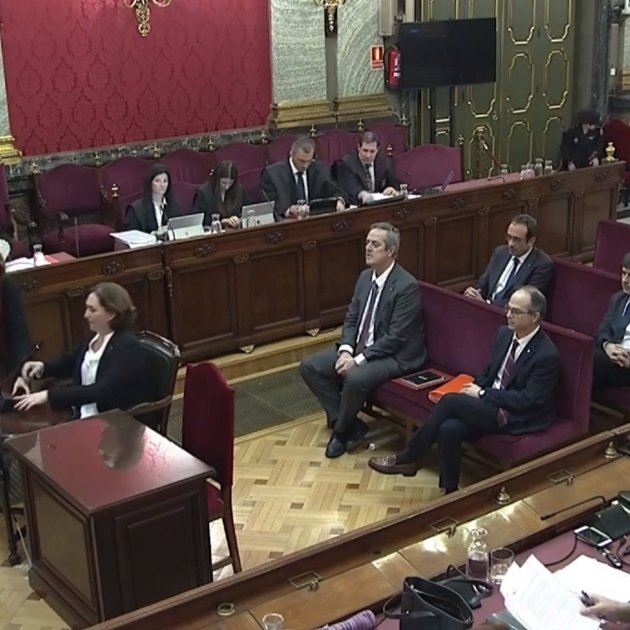This Thursday saw the second day of a procession of senior Spanish and Catalan politicians through Madrid's Supreme Court to testify as witnesses in the Catalan independence trial. The lehendakari (Basque president), Iñigo Urkullu, and Barcelona's mayor, Ada Colau, were impeccable; former Spanish interior minister Juan Ignacio Zoido struggled more with the defence's questions.
Urkullu clarified what happened when it comes to the attempts at dialogue and negotiation and denied claims the Catalan government wanted to go ahead unilaterally.
On 19th June 2017, Urkullu and Carles Puigdemont met in Barcelona during the commemorations of the anniversary of the Hipercor terror attack. During that meeting, the then Catalan president asked his Basque counterpart to ask as a mediator given the "complete block" from the Spanish government.
Former prime minister Mariano Rajoy had been unclear about what interactions they had had: "at that time... there were lots of people who wanted to talk with me". The only thing he was sure about was that he wouldn't negotiate either "complying with the law, or the Spanish Constitution, or national sovereignty". In the end, lawyer Jordi Pina gave up on the topic of any conversations they might have had: "Don't worry, Mr Urkullu will clear it up for us". And that's what's happened: Urkullu has explained everything in detail.
The lehendakari was also careful responding to the public prosecution they were negotiating a "legal and agreed-upon [consultation], never a referendum which wasn't based on respect for the law".
Ada Colau
Ada Colau, for her part, took apart the claims of violence during the protests on 20th September in Barcelona, claims which have kept Jordi Sànchez and Jordi Cuixart in prison for over a year. She explained that, having arrived in Barcelona, "as well as the tweets, I made an institutional statement. The situation was very worrying. There was a feeling of a state of emergency. The events of 20th September take place in a context of anomalous things which we had never seen".
Barcelona's mayor was markedly political in her statements: "Behind the police charges [to stop the referendum] we believe there was a political instruction". She said she called the Spanish government's delegate to Catalonia, Enric Millo, to stop the police's use of force.
Juan Ignacio Zoido
Former Spanish interior minister Juan Ignacio Zoido had to testify with his imprisoned Catalan counterpart, Joaquim Forn, staring him down, and not from behind, but out of the corner of his eye, sitting behind his lawyer.
The former minister came to court today armed with a new argument: "weapons of war". He says that when he became interior minister in 2016, he found a request from the Mossos d'Esquadra (Catalan police) to buy "weapons of war and lots of ammunition". He didn't give details as to what these weapons were, but said they weren't grenade launchers when asked explicitly by prosecutors. He brought it up to argue the armed uprising required for the charge of rebellion and that the Catalan police were used like an army.
On the Spanish police's use of force during the referendum, almost before he could be asked anything, the former minister said: "I believe that it was proportionate action, given the circumstances that day". That said, he was more cautious than he has been before, with some vague answers and denials personal responsibility.
Adjourned until Monday
Head judge Manuel Marchena adjourned court this Thursday evening until next Monday, having decided to make an early start on another long week of witness testimony. Among those to appear will be current speaker of the Catalan Parliament, Roger Torrent, the former central government delegate to Catalonia, Enric Millo, and the head of the police operation during the referendum, Diego Pérez de los Cobos.
